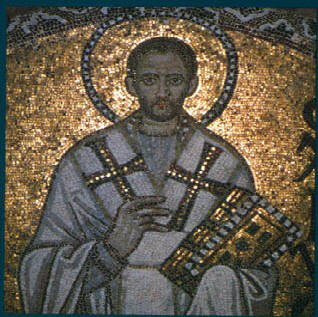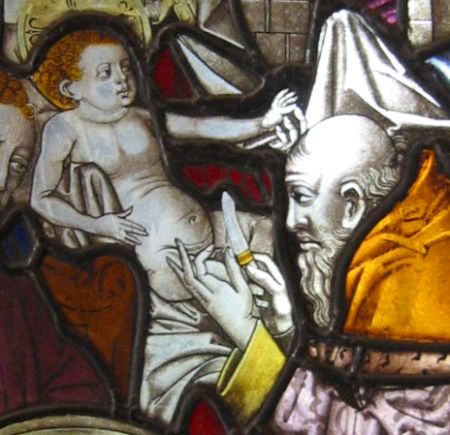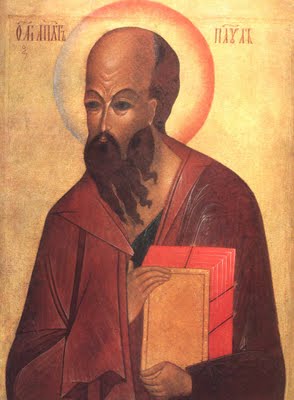
Share:   |
By Eric Zuesse
"My skeptical ear detects a very distinct ring of plausibility in his gripping tale. Zuesse's account of the origins of Christianity is provocatively interesting, ... and I find it clearly and forcefully written." -- Richard Dawkins, Oxford University professor of zoology, and author of the bestsellers (1976) The Selfish Gene, and (2006) The God Delusion.
"Presents a side of Paul that the general reader of the Bible, or even the scholars, miss"... -- Oswald Schrag, Emeritus Professor of Religion at Fisk University, Fellow of the Jesus Seminar, and member of the Westar Institute, the group of renowned scholars who study the origins of Christianity.
RESEARCH METHODOLOGY:
This is the first work to apply to the interpretation of classical documents the methodology which courts of law in a democracy apply when reconstructing a sequence of events on the basis of documentary evidence referring to them. Among the principles employed here, which haven't previously been used by historians, are:
(1) For any alleged historical reconstruction, cite only the best (the most reliable) evidence (and exclude the rest under the best-evidence rule);
(2) Things that a cited document necessarily implies, rather than explicitly asserts, have higher evidentiary value (credibility) than any explicit assertions; and,
(3) Each explicit assertion cited in evidence must be questioned not just as to its accuracy, but also as to its honesty-of-intent. These three principles have never been applied to the documents concerning earliest Christianity. Applying them produces a radically new understanding of how Christianity began.
FINDINGS:
This first-ever legal/forensic exegesis of Paul's letter to the Galatians, and associated legal/forensic analysis of the four canonical Gospels, finds that Christianity started in or around the year 49 CE in Antioch (present-day Antakya, Turkey) as a direct consequence of a personal conflict which had arisen, during the prior 14 years, between Paul and the leader of this (at that time) Jewish sect, which Jesus had begun prior to his crucifixion at around the year 30 by the Romans for sedition.
 The sect's leader was not Peter, such as Paul's followers who wrote the Gospels said, but was instead Jesus's brother James. Peter was and remained a follower of James, and he died (as did the rest of the sect) as a member of this Jewish sect, not as a Christian -- not as a member of the group which Paul started on this occasion. Jesus's sect soon itself expired.
The sect's leader was not Peter, such as Paul's followers who wrote the Gospels said, but was instead Jesus's brother James. Peter was and remained a follower of James, and he died (as did the rest of the sect) as a member of this Jewish sect, not as a Christian -- not as a member of the group which Paul started on this occasion. Jesus's sect soon itself expired.
What's known today as Christianity started with Paul, and was then developed by his followers, who wrote the canonical Gospels and the rest of the New Testament. The religion of the New Testament actually has nothing to do with the person of the historical Jesus: The NT was written and assembled to fulfill Paul's Roman agenda, not Jesus's Jewish one. This is shown to explain the entire Christian myth.
The conflict between Paul and James has to do with the circumcision-commandment, Genesis 17:14, which is Judaism's signature-commandment, by which a person signs God's contract in blood and becomes eligible to be a member of God's People.
Paul doesn't want to enforce it, because neither anesthesia nor antibiotics yet exist in this ancient era, and so any medical operation is an excruciating horror for these adult men, and frightening also because all operations have a high fatality rate from infections. James knows that if Genesis 17:14 is to be enforced upon Paul's men, then most of them will simply abandon Jesus's sect and will abandon Judaism altogether.
But finally in the year 49 or 50, right after the council in Jerusalem (which Paul refers to in Galatians 2:1-10), James does try to enforce it, and Paul calls James's bluff and refuses to comply. This is the moment when Paul first announces Christianity: the occasion Paul describes approximately four years later in Galatians 2:16-21.
The event that created Christianity is referred to in carefully veiled language in Galatians 2:11-21: James here changes his mind and decides that Genesis 17:14 will have to be enforced after all, and he sends Peter to Paul in Antioch to order him to have all his men circumcised. James also sends a back-up team to check up on Peter (who is very reluctant to do this), and to make sure that Peter does what he is told.
 But when the back-up team arrives and sees Peter instead dining with Paul's uncircumcised men, Peter is startled and embarrassed to be seen dining with these non-members, and so he backs away from the table. At this moment, Paul responds to Peter by announcing, for the first time ever, Christianity, which is the doctrine that Paul states in Galatians 2:16-21.
But when the back-up team arrives and sees Peter instead dining with Paul's uncircumcised men, Peter is startled and embarrassed to be seen dining with these non-members, and so he backs away from the table. At this moment, Paul responds to Peter by announcing, for the first time ever, Christianity, which is the doctrine that Paul states in Galatians 2:16-21.
Although Paul says that he's rejecting the circumcision-commandment because he rejects the entire covenant, he is actually rejecting the entire covenant because he rejects the circumcision-commandment. This is the only way Paul can keep his men with him; he simply can't admit to them that they are not Jews. So, from now on, he needs to be very careful about how he words things. Only gradually do his men come to recognize that they aren't Jews. Paul prepares them for this by telling them how horrible strict Jews are, such as he does in Galatians 1:13-14, 1 Thessalonians 2:3-16, and Philippians 3:2-8.
James is now trapped by circumstances: If he publicly announces that Paul's men are no longer members of Jesus's sect, then James will lose the vast majority of his sect's members, since Paul had converted them.
Furthermore, Paul's followers are Gentiles in a Gentile world ruled by Gentile Rome, during the time when Rome is at war against the Jews in Jerusalem. Jerusalem's Jews are a poor and defeated people. James is relying on the financial contributions coming in from Paul's many Gentile congregations, to support the Jesus sect. James therefore needs to remain silent about Paul's coup d'etat.
The "Jesus" who is described in the Gospel-accounts is written later, by Paul's followers, not by James's, and is written so as to add narrative flesh to the bones of Paul's agenda -- the agenda exposed in Galatians and in the other six authentic letters from Paul -- the earliest-written of all Christian documents.
 The Gospel-writers, who write during the immediately following generations, actually represent Paul, not Jesus. However, some elements of truth have to be embodied in their accounts of "Jesus," because, even as late as they're writing, widespread accounts still exist of some things that simply cannot be denied without losing all credibility, such as Jesus's claim to have been "king of the Jews" -- a claim which, even in their time, is widely recognized to have been seditious against Rome's authority.
The Gospel-writers, who write during the immediately following generations, actually represent Paul, not Jesus. However, some elements of truth have to be embodied in their accounts of "Jesus," because, even as late as they're writing, widespread accounts still exist of some things that simply cannot be denied without losing all credibility, such as Jesus's claim to have been "king of the Jews" -- a claim which, even in their time, is widely recognized to have been seditious against Rome's authority.
A scientific understanding of the start of Christianity can be achieved only if the motives of the individual actors are documented and are truthfully presented. Until the present work, no one has known how this could even be done. But now it's done, and the result is a gripping narrative in which Paul not only removes most of Jesus/James's followers and brings them over into the entirely new religion which Paul created in the year 49 or 50.
But Paul designs his new faith precisely to serve the needs of the Emperor -- ironically the successor to the very same man, Tiberius, whose soldiers had executed Jesus for sedition against Roman rule. Paul designs his religion to make it appeal to the emperors, because Paul understands that they possess the power ultimately to impose Christianity throughout their realm. He knows that this won't happen in one generation, but he's confident that it will happen -- and it does, three hundred years later!
Paul wins. Jesus and his brother James lose. And the result is a new religion which serves perfectly the needs of the Emperors, such as by saying (Romans 13:1-7) that people are obligated to follow the laws which the Emperor commands, and not the laws which the Jewish God commands.
Paul makes Rome's Emperor God's agent to create and enforce all laws. He supplies to the Emperors a Roman Catholic -- or universal Roman -- God to authorize their power. Prior to Paul, the Emperors could rely only on local Roman deities who possess no moral authority outside Rome. Emperors know that they need a universal God to authorize the laws which the Emperors issue, and Paul (and his followers who write the four canonical Gospel accounts of "Christ") design and create precisely that.
The author, Eric Zuesse, will be happy to e-mail the current draft of this nearly 500-page book manuscript as an attachment in either PDF or WORD, to any reader who is willing to provide feedback. Such pre-publication feedback will be helpful and appreciated. Please contact Eric at delphicpress@yahoo.com.
Suplements to Eric Zuesse's Christ's Ventriloquist by Edward Jones
Crucial new understandings of the "Jesus Puzzle" made possible by present historical and scientific methods and knowledge.
Ogden: "We now not only know that none of the writings of the OT is prophetic witness to Christ, we also know that none of the writings of the NT is apostolic witness to Jesus." This is a historical judgment based on historical evidence determined by an insider of the Guild of NT Studies. Eric Zuesse : "The religion of the NT actually has nothing to do with the person of the historical Jesus." This is a scientific judgment based on scientific evidence determined by an outsider. Hence we now have conclusive evidence, both from the methodologies of historicity and science, that the writings of the NT, Paul's letters, the Gospels, as well as the later writings of the NT, are not sources for knowledge of Jesus.
Our most certain historical evidence can only come from within the Guild of NT Studies, even as our best scientific evidence can only come from outside. No evidence, historical or scientific, is presented to question that we have NT source of apostolic witness to Jesus. Only from within the Guild of NT Studies might a scholar have acquired sufficient competence in its areas of special knowledge, which necessarily applies if one is equipped to fully access the historical evidence necessary to identify this NT source of apostolic witness to Jesus.
As Eric Zuesse's probe demonstrates, full historical details of origins of Jesus traditions during the years 30-65, can only be accessed by historical scholars from within the Guild. E.g., Eric's probe fails to recognize that there were two distinctly different movements of earliest Jesus traditions, each with its own understanding of the significance of Jesus, marked by "an extraordinarily intimate, more precisely adversarial, relationship" (Betz). Both were pre Christian, pre Gospel, partly pre Pauline.
Paul was never a member of the first, the Jerusalem Jesus movement from which is derived our sole source of apostolic witness to Jesus. Paul was persecutor of the second movement, which soon followed the first, a pre Pauline Hellenist movement which introduced the notion that Jesus was the Jewish Messiah whose significance was the salvific effects of his death and resurrection, which abrogated the Torah. This in effect was treason for Temple authorities.
Paul is introduced as a participant in an apparent put down by Temple authorities of some kind or anti Torah demonstration, holding the garment of those casting the stones in the Acts story of the stoning of Stephen, a leader in this Hellenist group. Next we find Paul as persecutor of this group, having his "vision" on the road to Damascus to where the Hellenist group fled, resulting in his conversion to this group from which he received his Christ myth gospel. In taking his Christ myth gospel to the Gentile world first to Antioch, meeting with much success, this had the effect of severing Jesus from his teaching and his Jewish roots. The Gospels were written by followers of Paul's Christ Myth gospel. All of these developments are sufficiently documented in the NT.
